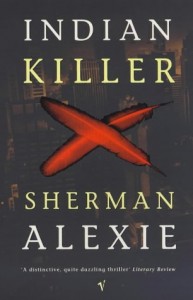What happens when an MFA writes genre fiction? With all the flack writing programs get for producing uniform voices, you might think the two are antithetical. But when Andrew Cotto used his MFA from The New School to write Outerborough Blues he brought the skills of a trained writer to the conventions of a mystery novel.
Because this literary/genre divide is sometimes fightin’ territory for writers from both camps, let’s get a couple of things out of the way first so you know where I’m coming from.
Do you need an MFA to write well?
Of course not. Everyone’s definition of good writing is different, but I believe to write well you need careful attention to the words that are your tools. Studying for an MFA gives you time to consider those tools and the effect to which you use them, but there are loads of great non-MFA writers and some of them (Jonathan Lethem is a favorite) could be considered genre writers.
What is genre fiction anyway?
The distinction between genre fiction and literary fiction usually breaks down to plot driven versus character driven. There are all kinds of genres (mystery, fantasy, science fiction) and I really don’t like to draw too many lines, but sometimes putting a name to something lends easy description.
The richness of Outerborough Blues
I can see Cotto’s MFA in this book in some very positive ways. These are a few things I do not expect to see (but am always grateful for) in a mystery novel.
Strong characters
If I told you the catalyst of the story is the moment a beautiful woman walks into the bar where Caesar Stiles works, I would not be doing this story justice. Stiles is no Bud White (especially not the film version) and he’s got a lot more on his mind than helping this moll. His relationships with his family and the other characters in the story are multifaceted and this gives the novel depth.
Strong sense of theme
The title “Outerborough Blues” has a subtle musical element that could be fleshed out or it could be left unexplored. Cotto develops the musical theme with “Slow, flowing progressions in a melancholy key” in two notable ways. One is the way the narrator overlays the sounds of the neighborhood with the music on his stereo. The second is the way the stories about his past relationships build like verses of a song.
Evocative sentences
A writer with control over his or her tools has the ability to set a scene with a very few words. Here are some of Cotto’s sentences that do just that:
- “The lady in the liquor store sold me a fifth of whiskey and the landlord’s name without taking her eyes off the book she was reading.”
- “My boot pulverized broken vials on the cracked sidewalk.”
- One character describes the evolution of the neighborhood as “Milk and honey turned to malt liquor.”
Layered stories
Outerborough Blues tell several stories at once. This could be cacophonous, but Cotto gently layers the tales of family relationships, gentrification, and the mystery at hand that they become as inextricably linked as any real life. As the aspects of the story unfold over the reader, you are exposed to more and more aspects of the story and the community it takes place in. All in 200 pages.
Is there really a difference between genre and literary fiction?
Cotto reinforced for me something I learned while studying for my MFA at Goddard College (one of the MFA programs which prides itself on welcoming genre writers): good writing is not at all limited by genre. Some people want really well described characters. Some want fast, tight plots in rich worlds. Good writing happens in both camps and great writing blurs the lines between them. Cotto has done just that.
If this review made you want to read the book, pick up a copy of Outerborough Blues from Bookshop.org. Your purchase keeps indie booksellers in business and I receive a commission.
 I have spent the last several days riveted by Sherman Alexie’s Indian Killer and it has challenged me every step of the way.
I have spent the last several days riveted by Sherman Alexie’s Indian Killer and it has challenged me every step of the way.